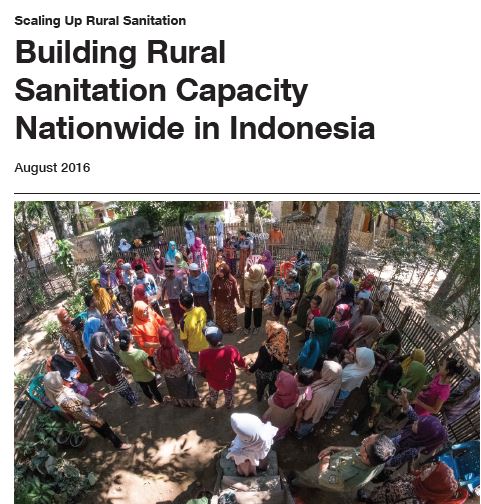Scaling Up Rural Sanitation Building Rural Sanitation Capacity Nationwide in Indonesia
Indonesia faces a shortage of sanitation professionals exceeding 12,000 to reach its ambitious target of universal sanitation access by 2019 and this cannot be met by fragmented business-as-usual training. The Ministry of Health (MoH) institutionalizes capacity building nationwide through three streams: i) in-service accredited training tied with staff performance credit, ii) pre-service training through health schools’ curriculum, and iii) distance training through e-learning. The first 18-month institutionalization process has shown promising results: By December 2015, almost 500 people have been awarded credit points; 497 people accessed the e-learning with 92% completion rate for mandatory module; and more than 2,000 students already completed the class. Critical success factors are: effective coordination mechanisms led by MoH; optimal use of existing organization and staff incentive structures; and complimentary web-technologies in addition to classroom and field based training to achieve cost efficiency and reach a wider audience. Continuous promotion, innovation and facilitation through systematic support and robust monitoring and evaluation will help achieve increased uptake of the new courses led by MoH.
